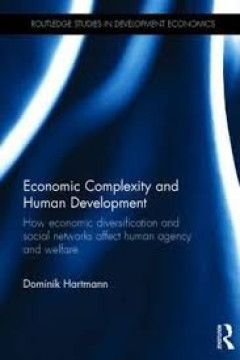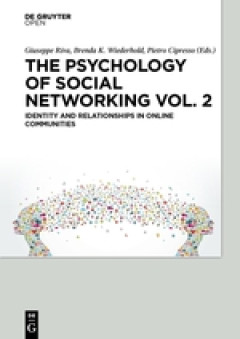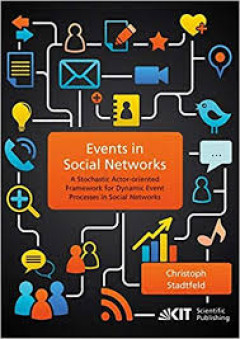Ditapis dengan

Social networks with rich edge semantics
Social Networks with Rich Edge Semantics introduces a new mechanism for representing social networks in which pairwise relationships can be drawn from a range of realistic possibilities, including different types of relationships, different strengths in the directions of a pair, positive and negative relationships, and relationships whose intensities change with time. For each possibility, the …
- Edisi
- -
- ISBN/ISSN
- 9781315390628
- Deskripsi Fisik
- xx, 210p. : ill.
- Judul Seri
- -
- No. Panggil
- 302.3015118 ZHE s

Economic complexity and human development:how economic diversification and so…
This book combines the human development approach and innovation economics in order to explore the effects that structural economic change has on human development. The author discusses how innovation, social networks, economic dynamics and human development are interlinked, and provides several practical examples of social and micro-entrepreneurship in contexts as diverse as Peruvian rural vil…
- Edisi
- -
- ISBN/ISSN
- 9780415858915
- Deskripsi Fisik
- xxiv, 218 pages : illustrations ; 24 cm
- Judul Seri
- -
- No. Panggil
- 306.3 HAR e

The Psychology of social networking Vol. 2. Identity and relationships in onl…
Using a novel approach to consider the available literature and research, this book focuses on the psychology of social media based on the assumption that the experience of being in a social media has an impact on both our identity and social relationships. In order to ‘be online’, an individual has to create an online presence – they have to share information about themselves online. Thi…
- Edisi
- -
- ISBN/ISSN
- 9783110473858
- Deskripsi Fisik
- 246 p.; 23 cm.
- Judul Seri
- -
- No. Panggil
- 302.30285 RIV p

Events in social networks :a stochastic actor-oriented framework for dynamic …
Interactions between people are ubiquitous. When people make phone calls, transfer money, connect on social network sites, or visit each other, these actions can be collected as dyadic, directed, relational events. Each of those events can be understood as driven by multiple individual decisions that at least partially involve rational considerations. This book aims at developing models that al…
- Edisi
- -
- ISBN/ISSN
- 9783866447929
- Deskripsi Fisik
- v, 140p.: ill.
- Judul Seri
- -
- No. Panggil
- 302.015118 STA e
 Karya Umum
Karya Umum  Filsafat
Filsafat  Agama
Agama  Ilmu-ilmu Sosial
Ilmu-ilmu Sosial  Bahasa
Bahasa  Ilmu-ilmu Murni
Ilmu-ilmu Murni  Ilmu-ilmu Terapan
Ilmu-ilmu Terapan  Kesenian, Hiburan, dan Olahraga
Kesenian, Hiburan, dan Olahraga  Kesusastraan
Kesusastraan  Geografi dan Sejarah
Geografi dan Sejarah